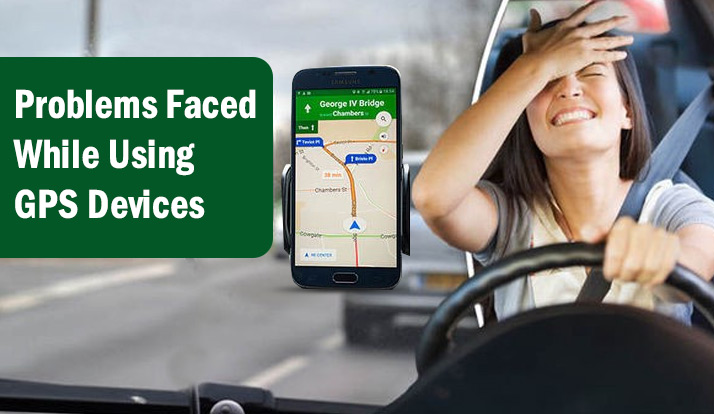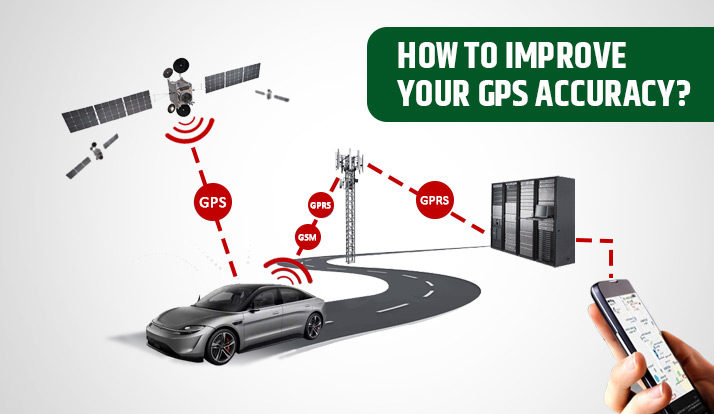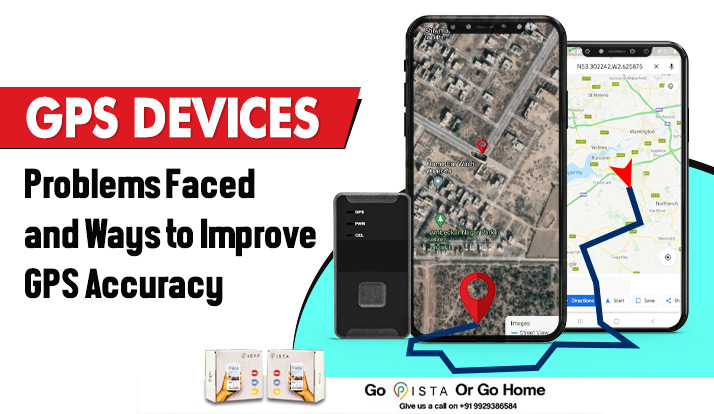Thanks to the recent advancements in technology, the current generation has access to information our ancestors could only have dreamed about. One such example is GPS or Global Positioning Systems. Though initially meant for use by the military, the technology is now finding increasing applications in the civilian and non-military sector.
One cannot underestimate the importance of GPS technology in fleet management and various transport operations. Thanks to GPS technology, transport operators, and fleet owners now have the power to increase the visibility and efficiency of their assets. A plethora of information is available with just a single click of the mouse. While all of us realize the uses and advantages of GPS tracking software, we often fail to analyze the common issues we may face while using a GPS device.
This article highlights some of the common problems people face when using GPS devices and how you can improve your GPS accuracy.
Problems Faced While Using GPS Devices

-
InCorrect Tracking
One of the common problems that occur is accurate tracking. The most advanced satellites can pinpoint your exact location, give or take 3-10 metres. However, there are some points during the day you will experience poor tracking. So, what causes this to happen? The answer to this is GPS signals. GPS signals travel huge distances through the atmosphere from multiple satellites before reaching your device. The problem here is that your device needs to receive strong signals from ideally 5-6 satellites simultaneously to provide accurate location data. If you desire the best signal for your device, it is best to be outdoors. It will reduce the number of obstructions faced by your device in receiving the strongest signals. Also, if a satellite is not directly overhead, it reduces the GPS signal accuracy and makes it harder to track accurately.
-
Cold Starts
When a GPS is on, or if the GPS has been inactive for too long, it needs to download the data from satellites that describe the position and timing of all other satellites. The process can take up to five or more minutes to correct and lead to incorrect GPS tracking.
-
Not Enough Satellites
As discussed earlier, a GPS device needs to receive signals from at least 7-8 satellites to pinpoint your exact location within 10 metres. A less number of satellites means greater uncertainty and inaccuracy. With access to less than 4 satellites, many GPS receivers fail to provide accurate location data.
-
Poor Hardware
If your device is old or does not receive a good GPS reception, it will fail to receive strong satellite signals and cell phone tower signals.
-
Low Battery
If your device is low on battery, it can severely hamper its ability to receive GPS signals.
-
Multipath Signals
When the signals received from GPS satellites or cell phone towers bounce off buildings, it can confuse the GPS device with the time taken by the signal to reach it. In such cases, one may observe an error in the location estimates. Unfortunately, there is not much that one can do in such cases.
-
GPS Drift
You might have observed that your GPS tracking device follows the shape of the road. In such a situation, the GPS device can deviate from the route and lead to a less accurate location estimation.
-
Lost GPS Signals
If a GPS signal is lost and later re-acquired, the signal points before and after such an incident are treated as two different points, and the GPS device will connect them using a straight line.
-
GPS Bounce
A GPS signal that bounces off trees and buildings can cause your activity to report a greater distance than what you travel. It is because each bounce has to be accounted for using a straight line to connect them.
-
Radio Interference or Jamming
Satellite maintenance may lead to a temporary delay in coverage. In some cases, it may happen that a device’s GPS hardware is working fine; however, the software is faulty. A faulty GPS tracking software can mislead users through incorrectly drawn maps, mislabeled locations, missing roads, buildings, localities, etc., and poorly estimating street addresses.
How to Improve Your GPS Accuracy?

There are some shortcomings regarding GPS signals. GPS satellites broadcast their signals with a certain amount of accuracy in space; however, the signals that one receives on the ground depend on the satellite’s geometry, signal blockages, atmospheric conditions, and the receiving device’s features and quality.
Now that you have understood that the accuracy of a GPS device is dependent on various factors, here is a list of suggestions that will help you get the most exact location data on any device.
-
Keep the GPS Application Active
When a GPS application stays inactive for too long, it stops tracking actively and accurately.
-
Research and Choose the Best Device
Different devices use different GPS chips. Therefore, if GPS is one of the tools that you regularly use in your daily lives, ensure you choose a device most appropriate for its use.
-
Connect to Third-Party Bluetooth GPS to Receive Better Signals
It will considerably improve your positioning data accuracy.
-
Reboot Your Device or The GPS Application
It is more often helpful than not. Rebooting your device allows the GPS system to recalibrate and lead to better signal reception.
-
Avoid Areas With Poor GPS Reception
Keep your device in high and open areas or near windows if you are inside a building to get the best signal. Try to avoid dense forests, canyons, valleys, etc., where you have less probability of receiving good signals.
-
Keep Your Device Charged
Ensure that your device is always charged while the GPS application is running. As discussed earlier, low battery levels can severely limit your chances of receiving GPS signals.
Conclusion
While there are some problems associated with the use of GPS devices that are unavoidable and which you can do nothing to resolve, there are some issues that you can quickly and efficiently resolve following the tips and suggestions listed above.
We hope you found this article useful and entertaining. For more such interesting blogs and articles, please stay connected with us.
Related Search
Importance of GPS Technology
GPS Tracker is Your Solution
